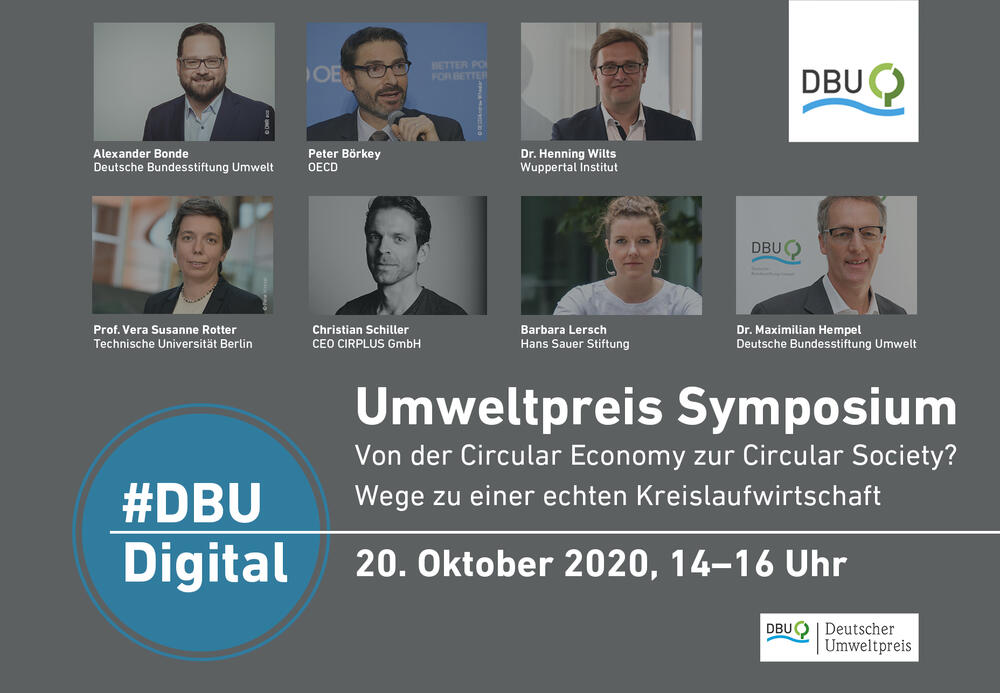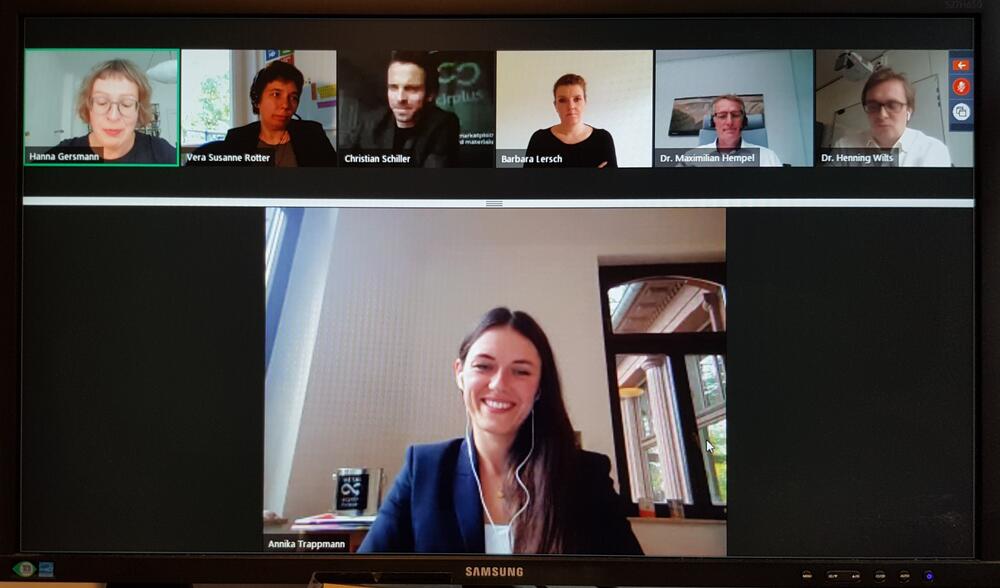DBU aktuell No. 8 | 2020| English
Information on Grant Support Activities of the German Federal Environmental Foundation (Deutsche Bundesstiftung Umwelt)
1.) Circular economy as an opportunity for economic change – Environmental Award Symposium on Circular Economy
"Instead of extracting valuable and finite raw materials, manufacturing products from them and throwing them in the garbage at the end of their use, we need a true circular economy", said DBU Secretary General Alexander Bonde in his welcome address to this year's Environmental Award Symposium. Under the title "From Circular Economy to Circular Society?" the symposium - due to Corona - took place digitally for the first time.
Ways to a true circular economy
Wood instead of concrete, sharing, higher raw material prices: "Innovative business models play an important role in the transition to a circular economy," Peter Börkey from the Organization for Economic Cooperation and Development (OECD) pointed out in his keynote speech "Ways to a true circular economy." In recent years, he said, raw material consumption worldwide has increased many times over. According to OECD calculations, if "things continue as they are," raw material consumption would double by 2060, with serious consequences for the environment, Börkey said. To counteract these trends, economic growth and raw material consumption must be decoupled from each other, which can be achieved through a transition to a circular economy, he said. Innovation - both technological and societal - plays a key role in this, he said. Artificial intelligence, robotics or even the Internet of Things could help in the transition to a circular economy. However, Börkey also believes that policymakers have a duty to create the appropriate framework conditions: "We have to completely rethink our approach. You have to say goodbye to the growth idea in terms of growing raw material consumption, but not to the growth idea of greater prosperity."
We need a 'flattening the curve'
In the discussion that followed, Dr. Henning Wilts from the Wuppertal Institute for Climate, Environment, Energy, Professor Vera Susanne Rotter from the Technical University of Berlin, Christian Schiller, CEO of the DBU-funded start-up cirplus, Barbara Lersch from the Hans Sauer Foundation and DBU department head Dr. Maximilian Hempel debated further possibilities and options for action.
"We need a 'flattening the curve' also in mitigating raw material withdrawals and smart ideas for keeping raw materials in the loop. Educational opportunities can make the ideas viable," Hempel said. Lersch advocated creating transparency so citizens understand processes. "The circular economy doesn't work without society," she said.
5 million tons of plastic ending up in the ocean
Cirplus CEO Schiller, as the operator of an online platform for plastic waste and recycled plastic, reminded the audience of the plastic problem: "There are currently about 15 million tons of plastic ending up in the ocean every year. A plastic tax sounds good at first, but it doesn't help us in practice. It's not that easy for Germany to flip the switch." Rotter added, "We have to look at what is in the plastics. The circular economy is about the environmental targets we set. It's about reducing pollution."
"We can't have circular economy become another driver of resource consumption. We need to generate more wealth from fewer resources," Wilts urged. Despite all the difficulties that currently still exist, Hempel drew a positive conclusion: "Even drugstores now sell unpackaged soap, and manufacturers are earning money with it. You have to find business solutions, then it works." Annika Trappmann, this year's environmental award winner, joined the discussion and reported from the field: "I work for the association 'Climate Protection Companies'. From small businesses to large corporations, companies are involved. A change is possible even in large companies. You have to want to and have patience."
The digital symposium was moderated by Hanna Gersmann, a journalist specializing in environmental and economic policy.
The video recording of the symposium can be found at the link www.youtube.com/watch?v=4OE4FscJAtI
Translated with Deepl



